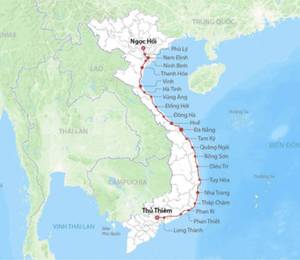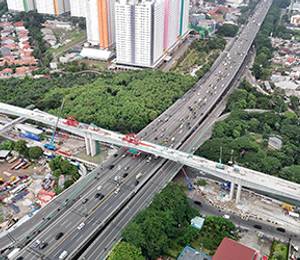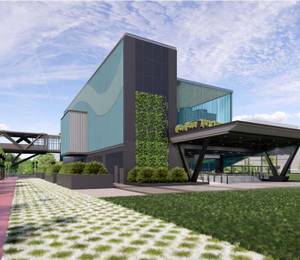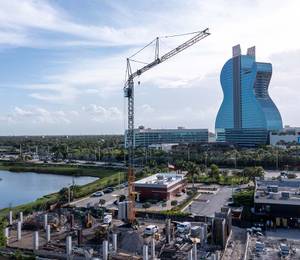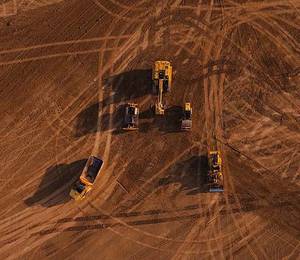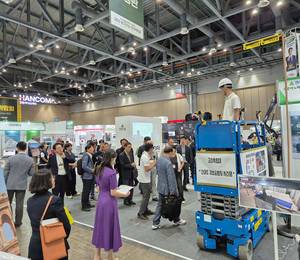Sino Group and local start-up EcoBricks Limited have introduced an innovative solution to plastic waste in Hong Kong, which has the ability to upcycle all types of plastics into sustainable construction materials.
The Hong Kong Government has unveiled the ‘Waste Blueprint for Hong Kong 2035’, mapping out a comprehensive plastic management strategy, while Sino Group is continuing its efforts to reduce and recycle single-use plastics as part of the commitments under the ‘Decarbonisation Blueprint’ that sets a holistic roadmap to strive for net-zero carbon by 2050.
Plastic is typically classified into seven types, and EcoBricks’ solution reimagines the plastic journey with its proprietary and process formula, which has the ability to upcycle all seven types of plastic waste, including mixed and composite plastics that are currently impossible to recycle and would otherwise go to landfill.
The upcycled EcoBricks are ‘green concrete’ for use in a wide variety of industry-standard construction materials, developing a circular economy solution to Hong Kong’s plastic waste issue.
“EcoBricks targets hard-to-recycle plastic waste that very often ends up in landfills or our natural environment,” explained Shervin Sharghy, founder of EcoBricks. “We have implemented a low-energy 100% cold production process with no heating or melting of waste plastics and therefore no harmful emissions or pollutants.
“EcoBricks can replace up to 50% of natural aggregates in concrete bricks with unwanted plastic waste. This means up to 2,000 kg of plastic waste is diverted from landfills for every 100 sq m of EcoBricks produced, equivalent to 200,000 plastic bottles.”
“We are incredibly thankful for the pivotal role that Sino Group has played in offering invaluable guidance and support from the very start of our journey, enabling us to turn our innovative concept into reality,” added Mr Sharghy. “Our founding vision was of a scalable circular economy solution that would increase recycling rates whilst at the same time providing more sustainable solutions for our built environment.”
EcoBricks were first introduced at Gold Coast Piazza in Tuen Mun with over 15,000 EcoBricks utilised to pave the promenade and line the Leaf Path. These bricks were upcycled from the plastic from over 560 old washing machines, equivalent to 5,400 kg of plastic waste.
Sino Group said it will continue to deploy EcoBricks at other suitable properties, including Olympian City and The Fullerton Ocean Park Hotel Hong Kong, as well as strengthening engagement with tenants and customers in supporting plastic recycling and upcycling into EcoBricks.
“Sino Group is dedicated to making sustainability a driver of our business, and exploring innovative solutions that shape a healthier and more sustainable environment. Sino Inno Lab provides a sandbox platform to support start-ups to develop innovative PropTech solutions that benefit the industry,” said David Ng, group associate director of Sino Group.
”We are excited that this vision has been realised through this partnership and the EcoBricks project at Gold Coast. The Group is also committed to developing a platform to promote the concept of circular economy, through engaging different stakeholders and nurturing start-ups for the application of innovative solutions to environmental issues and promoting the importance of sustainability,”
Hong Kong’s Secretary for the Environment, Wong Kam-sing, commented, “I am delighted to see Sino Group leveraging innovation and technology to transform plastic waste into construction materials, with a view to exploring new ways to strengthen local resource recycling. To achieve the targets and visions set out in the ‘Waste Blueprint for Hong Kong 2035’ and the ‘Hong Kong’s Climate Action Plan 2050’, technology breakthroughs and the participation of the whole community are both crucial.
“This project is a good example of the real estate industry’s commitment to the community and its support of innovation, in line with Hong Kong’s target to strive for carbon neutrality before 2050. Meanwhile, I call on the public to enhance waste reduction at source and clean recycling, and to support a circular economy and green employment, so as to reduce waste and carbon emissions together.”
